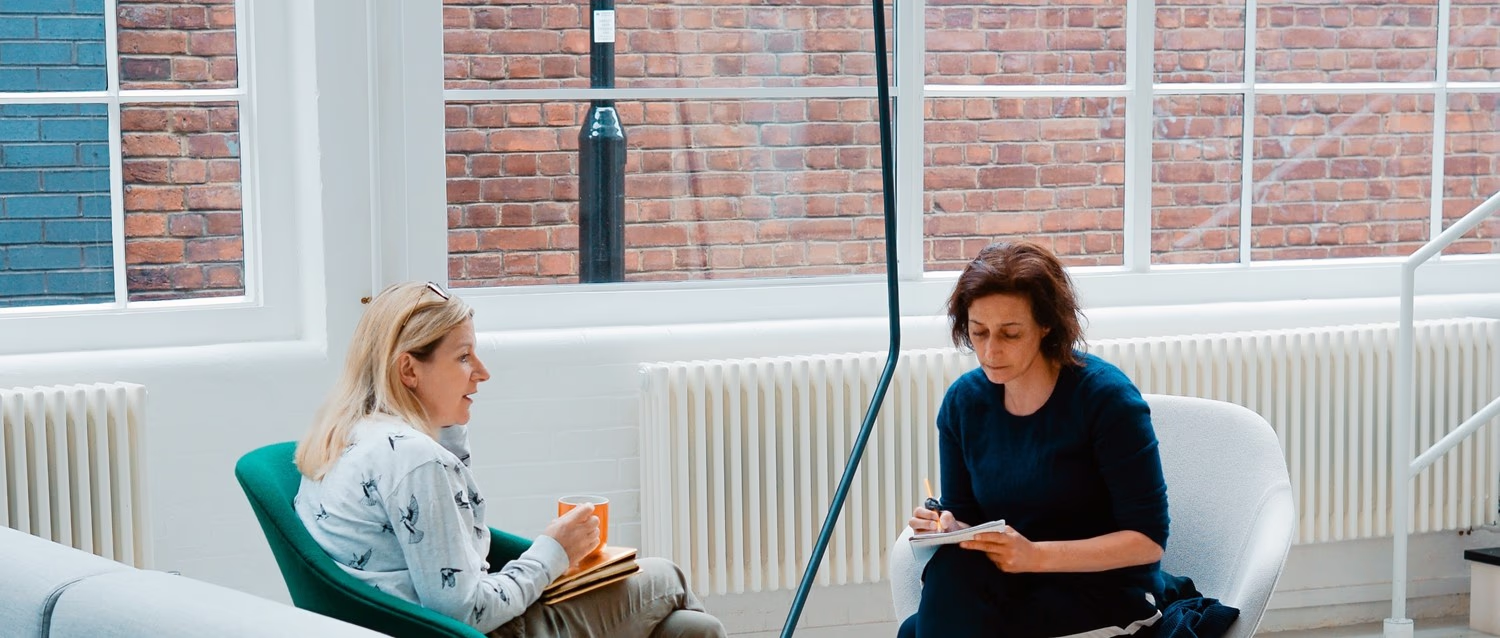
How to choose a therapist
Peer reviewed by Dr Sarah Jarvis MBE, FRCGPLast updated by Milly EvansLast updated 10 Mar 2020
Talking therapy is growing in popularity. We're getting more comfortable admitting that we're seeing a therapist or counsellor and more of us are seeking out support for our mental health. If you're looking to take the first step to find talking therapy, where should you start looking?
In this article:
It can be confusing when you start researching therapy, trying to find the right type, method and professional for you.
So where do you begin? We asked Lesley Ludlow, member of the British Association of Counselling and Psychotherapy (BACP) and a counsellor and supervisor based in Croydon.
Continue reading below
Different types of therapy
Broadly speaking, therapists are broken into three categories:
Psychotherapists
Counsellors
Clinical Psychologists
Counselling Psychologists
'Counsellor' and 'psychotherapist' (or just 'therapist') will often be used interchangeably because they have fairly similar definitions. Some mental health professionals prefer to call themselves counsellors if they deal with short-term problems with the aim of changing behaviour, whereas psychotherapists may work with a client on multiple issues on an ongoing basis.
However, neither title is protected in the UK, meaning that anyone can use it. This makes it especially important that you check whether a professional is registered before working with them.
A counselling psychologist has a degree in psychology and went on to gain a Professional Doctorate of Counselling Psychology. This means that, although they deal with similar issues to therapists and counsellors, they will often take a more scientific approach. 'Counselling psychologist' is a protected title in the UK, so only people with the right training can use it.
Different approaches
There are dozens of different therapy techniques out there, but there are three main approaches.
Behavioural
Behavioural therapies include cognitive behavioural therapy (CBT), applied behavioural analysis and social learning theory. "CBT would be used to treat something that might be a phobia or something that's presenting a short-term issue. These types of therapies will look at changing the way you view things, switching from a negative thought to a positive thought," explains Ludlow.
Psychodynamic and psychoanalytical
"The psychodynamic, psychoanalytic approach is looking at issues where the root is in childhood. We're addressing where the issues might have arisen then looking at present day stuff as well so it's more reflective and exploratory," she says. These therapies focus on our unconscious thoughts, perceptions and inner self to create long-lasting change in our emotional development.
Humanistic and person-centred
Humanistic therapies focus on the present moment, aiming to focus on the individual’s growth, development and responsibility. "Their belief is to meet the client where that client is in the moment. Rather than going back you just work with what the client brings in at that moment."
Each of these types encompass a range of techniques and specialities. Professionals prefer different approaches for different issues, which may include options like group therapy, mindfulness and art therapy, among others.
"Usually counsellors will have a list of things that they'll work with; we don't specialise in one particular field. Quite often clients will come in with one issue and, as the work develops, a lot will come up," says Ludlow.
Patient picks for Mental health therapy
Continue reading below
The practicalities
There are lots of barriers to therapy for different people, such as money, time, waiting lists or location. Fortunately, we now have a huge number of options which can work for different people.
Online, phone and in person therapy
Virtual therapy is growing in popularity. This could be instant messaging, video chat or phone calls.
"I think there's a bit of a trend for online therapy with younger people," says Ludlow. "There's more flexibility now that people don't have to choose a therapist in their area if they're happy to work on Skype or another platform. It works just as well."
Many people feel less pressure if they can have virtual therapy in their own home, rather than having to speak with someone face-to-face in an unfamiliar environment.
This can be especially useful if you need a therapist with a very specific focus or live in a rural area where therapists are hard to get to. However, online therapy isn't for everyone and most therapists and counsellors still offer face-to-face sessions.
"No matter how you work, the core benefit of therapy is the relationship. It's the fit between the client and the counsellor. That's where the work is really," she explains.
Time constraints
You can decide whether you would prefer to have a short course of therapy to work through one issue or if you want to treat therapy as an ongoing process.
"It really depends on the individual and what they need from therapy," says Ludlow. "I've got people who just have to have it in their life - they use it as a support; it's there as a prop. Some people just come and say, 'I want to work on this issue' - that could be two months, then they're gone."
You don't necessarily have to commit to an hour of therapy a week. With online therapy there are some providers who allow you to dip in and out as necessary, either with messages or short video calls. Other therapists might recommend a longer fortnightly or monthly session.
Financial barriers
Traditionally, accessing therapy has been very expensive, making it inaccessible to many people who desperately need it.
Improving Access to Psychological Therapies (IAPT) helps you to access talking therapies on the NHS. You can refer yourself to your local service without seeing your doctor. You will be put on a waiting list for an assessment where they will decide whether NHS therapy is suitable, which type and how many sessions you need.
You can also choose to book private therapy. Sessions tend to cost between £30 and £120, subject to the professional and a range of factors. Spacing sessions out, opting for online therapy and looking into therapy options for people on low income can help make this more affordable. You can book a private counselling and psychotherapy consultation on Patient Access.
Some charities offer free or reduced-cost therapy and counselling as part of their services. These tend to be for specific communities or issues, such as LGBTQ+ counselling or support for survivors of sexual violence.
Find the right therapist
Choosing the right therapist or counsellor can involve trial and error, says Ludlow.
"There are some people who will try several counsellors before they find the one that works. They'll know when they get talking to a counsellor whether they can be someone that they can work with and that's down to the relationship and how they connect."
The relationship between professional and client is crucial for therapy and counselling. It's important to find someone you feel you can talk to and who understands and respects you and your problems. Much of this might relate to a counsellor or therapist's lived or professional experience or identity. This could be especially important if age, sexuality, gender, race or disability are important to you.
"The key thing is to look at the counsellor's profile, to see if they work with the issues that you've got or that you think you've got," says Ludlow. In trying to decide if they are the right person for you, visual aids can also be helpful. "People look at pictures of the counsellors and work out whether they feel they could work with someone. Often people say to me, 'I wanted someone a bit more mature', or they might want someone who's young.
"The main thing is that you go with someone who's qualified and someone who's experienced," she concludes. You can find out if someone is registered by searching the BACP or UKCP (UK Council for Psychotherapy) registers. Registration means they pass certain checks and standards so you know you're seeing a trained professional.
Article History
The information on this page is written and peer reviewed by qualified clinicians.
10 Mar 2020 | Latest version

Feeling unwell?
Assess your symptoms online for free

